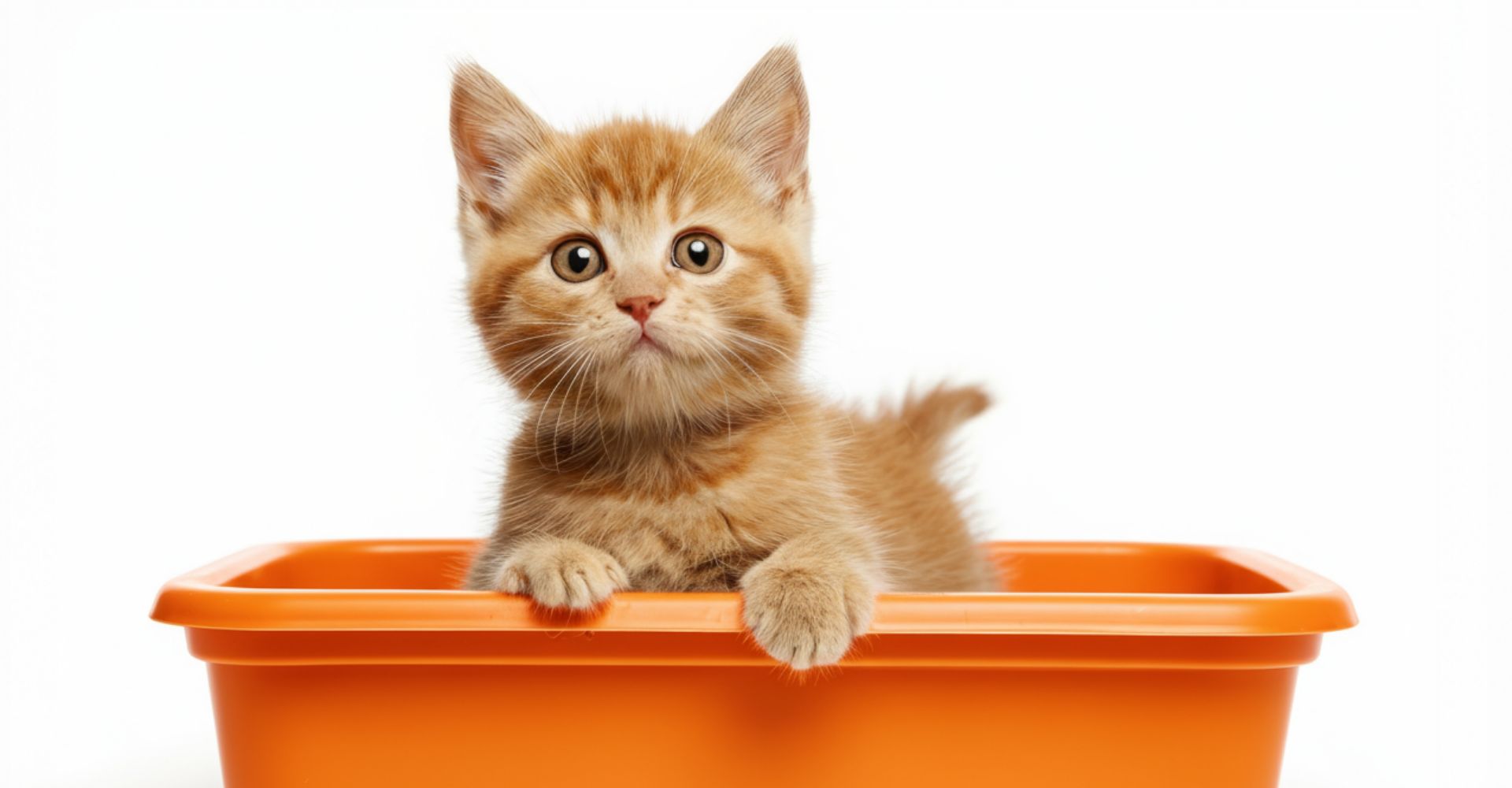It’s not exactly dinner-table talk, but cat poop says a lot about their health. Whether you’re a new cat parent or a seasoned “crazy cat person” (we see you), understanding what’s normal and what’s not, can make all the difference in spotting issues early.
From tummy troubles to serious illness, insurance for your cat comes in handy when the poop hits the fan. So, keep an eye on that litter box, it’s your cat’s way of sending you a health status update.
What to Look for in Healthy Cat Poop
Don’t worry, you don’t need a degree in poop-ology to figure out the gold standard of colour, firmness, shape, and smell. According to Hill’s Pet Nutrition, ideal cat poop should be well-formed, easy to scoop, and brown in colour.
Keeping things “moving smoothly” (pun intended) comes down to a few factors for ideal cat poop:
- Choose balanced meals with enough fibre
- Wet food plus clean water equals a happy gut
- Scoop litter boxes daily
- No sudden food changes or skipped meals
The Colour of the Clump: Cat Poop Colour Guide
If cat poop could talk, colour would be its first language. Here’s what your cat poop colour may mean.
| Colour | Possible Meaning | What To Do |
| 🍫 Brown | Perfectly normal | Carry on #CatParentOfThe
Year. |
| ⚫ Black or Tarry | Internal bleeding | Get to the vet, ASAP. |
| ❤️ Red streaks | Fresh blood | Another trip to the vet. |
| 🟡 Yellow/Orange | Liver or bile issues | Vet visit advised. |
| 🟢 Green | Ate grass or infection | If it persists, get advice. |
| ⚪ White/Grey | Pancreas or bile problem | Off to the vet for tests. |
| ⚪ White Specks | Worms | Time for deworming. |
A change in your cat’s poop colour could be your kitty trying to warn you that something inside isn’t right, so it’s always worth paying attention.
How Often Should a Cat Poop: Constipation and Other Red Flags
Most healthy adult cats poop once or twice a day. Kittens and cats on wet food might go more often, while older cats or those eating mainly dry kibble may go less. If your cat’s been regular and suddenly goes two days without a visit to the litter box (or starts going three times as much), something’s off. See your vet if:
- There’s straining or crying during a bowel movement.
- Poop is watery or ribbon-like.
- There’s visible blood or mucus.
RELATED: HUMAN FOODS CATS CAN AND CAN'T EAT
Cat Poop Chart: Consistency and Faecal Scores
Here’s a quick cat poop chart vets use (and now, so can you).
| Score | Look & Feel | Meaning | Action |
| 1 | Tiny hard pellets | Constipated | More fluids or wet food, please. |
| 2 | Dry, firm log | Borderline hard | Keep an eye on water intake. |
| 2.5 | Firm, moist, smooth log | Perfect! | Screenshot-worthy poop (if you must). |
| 3–4 | Soft, shapeless | Mild diarrhoea | Check food changes or stress. |
| 5 | Liquid or watery | Serious diarrhoea | Call the vet, ASAP. |
Cat Diarrhoea: Causes, Care, and When It’s Urgent
Just like humans, cats get the occasional tummy wobble. A quick diet change, too many treats, or even stress (yes, they feel it too) can upset their stomachs.
Common triggers include:
- Sudden food switches
- Parasites
- Intestinal inflammation (IBD)
- Viral infections
- Hairballs.
Home Care vs. Vet Care: The 24–48 Hour Rule
If diarrhoea doesn’t clear up within two days, or if your cat stops eating or becomes lethargic, see your vet. Dehydration happens fast, especially in smaller cats. Hill’s Pet Nutrition recommends introducing new food slowly over 7–10 days to avoid digestive drama.
Quick FAQs on Cat Poop: Could Cat Poop Indicate Cancer?
It’s rare, but yes. Persistent black, bloody, or mucus-covered stools, especially with weight loss, can signal cancer. Vets might suggest imaging or bloodwork to get answers.
(Oh and Why does my cat’s poop smell so bad)?
Usually diet, or bacteria imbalance. If it’s a cause for concern, please consult your vet.
When to Bring a Stool Sample (and How to Collect It)
If you’ve made it this far, congrats, you’re practically fluent in cat poop. Your cat’s litter box might not be pretty, but it’s packed with health clues. Get to know what’s normal for your kitty and trust your gut (and theirs) when something’s off.
When it is off, stool samples may help your vet detect the issues. Here’s how to collect it:
- Scoop it within 12 hours
- Use a clean ziplock bag or container.
- Label it with your cat’s name and date.
- Keep it cool (not frozen) until your appointment.
Your vet will probably do a faecal test, maybe some bloodwork, an ultrasound, or even a biopsy… but they will definitely ask you if you have insurance for your cat because sometimes, those “little issues” turn into big bills. That’s where dotsure.co.za comes in. Get in touch anytime if you’re worried about your cat’s wellbeing. You can also check out relevant blogs for more litter-box wisdom.



